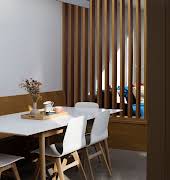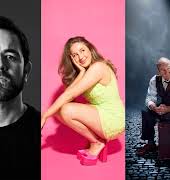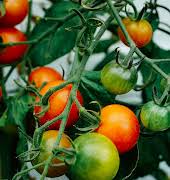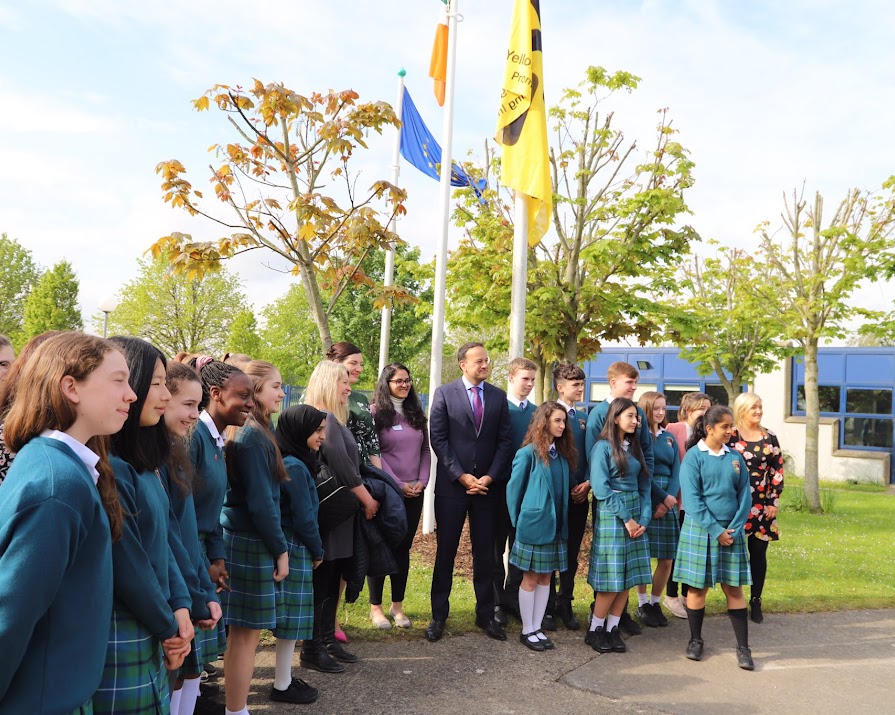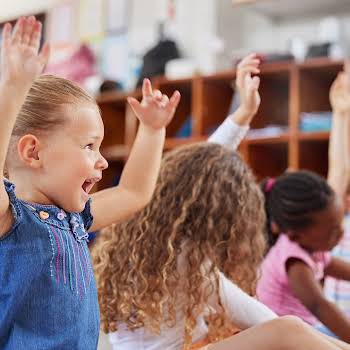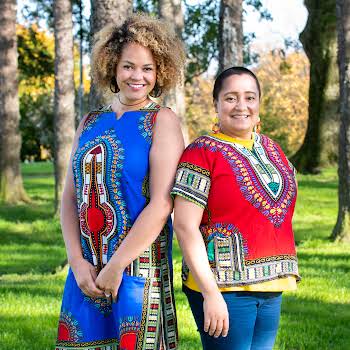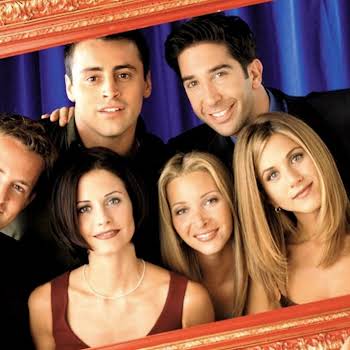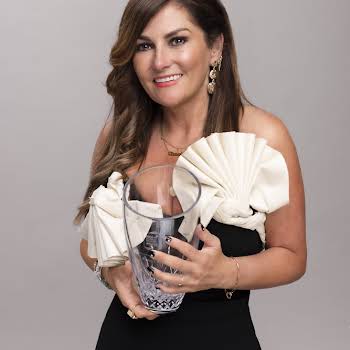
By Dominique McMullan
23rd Jul 2020
23rd Jul 2020
Former Taoiseach Leo Varadkar at the Yellow Flag raising ceremony at Castleknock Community College
This article is the first in a committed partnership between IMAGE and The Irish Network Against Racism (INAR). Each month IMAGE will work with INAR to shine a light on a person or project that is celebrating and promoting diversity and equality in Irish life.
Racism is complicated, layered, and often hidden in plain sight. It seeps into life in ways that many people, white people, in particular, are only just beginning to understand. Behaviours and attitudes can be so systemic, so deeply embedded in society, that they’re hard to see. For many, this is difficult to discuss. It invokes big feelings. But initiatives like the Yellow Flag school programme make a difference.
It’s not about racism, it’s about teaching children to be actively anti-racist.
The Yellow Flag programme was developed in 2009 by the Irish Traveller Movement after members experienced bullying and felt excluded from school life. They realised that other students from ethnic minority backgrounds might feel the same way, and the programme was born.
Shreya Chaturvedi is Coordinator of the Yellow Flag programme. She describes the programme simply; “It’s not about racism, it’s about teaching children to be actively anti-racist. Yellow Flag celebrates diversity, promotes inclusion, and challenges racism in the school environment. It was made with so much love.”
Equality on every level
The opposite of an Instagram square or a quick hashtag, programmes such as Yellow Flag tackle systemic racism at the root. They go into schools and give words and tools to young people to help them grow up actively anti-racist. To help them to recognize white privilege and to be allies to members of the marginalized parts of society where they live.
Shreya explains, “children notice differences in each other when they are seven or eight years old. If at this point they are told that everyone is different and equal, it has the power to truly change their outlook on life, forever.”
In a similar vein to the Green Schools Programme, the Yellow Flag is an award scheme. Once accepted to the programme the school is provided with a practical series of eight steps for students, staff, management, parents and the wider school community. On successfully completing the steps and being evaluated externally, the school is awarded its Yellow Flag. The award is publicised locally, and the school can fly its flag with pride and use the logo on its official correspondence.
Caoimhe Brouwers is a Link Teacher in Gaelscoil an Ghort, Álainn, which achieved a Yellow Flag. she says, “The Yellow Flag experience was a wonderful way to celebrate the diversity of the students, teachers and school community in general. To see children engaging with topics such as racism and diversity opened the doors for discussion in a way that hadn’t been broached previously and children began to have more of a voice which is wonderful. “

So how does it work?
Yellow Flag leaves no stone unturned in addressing issues of equality on every level in the school. Each programme is tailored to the individual school environment following an application process and a detailed survey.
Yellow Flag gives a voice to minorities, which lets them talk about, and celebrate, the things they normally wouldn’t. The positive impact on the community cannot be understated.
Once the initial discovery stage is completed, goals are set; teachers are trained; a diversity committee of students, teachers, parents and others is formed; local community and religious organisations are involved, and extensive classroom work takes place. Towards the end of the process students help to write a diversity code, and schools will look at their rules and see if they need to be changed.
Shreya explains, “The programme is more than a box ticking exercise. Every school that has the yellow flag, and every student in that school, understands how important it is to be anti-racist. It’s heartening to see.” Yellow Flag gives a voice to minorities, which lets them talk about, and celebrate, the things they normally wouldn’t. The positive impact on the community cannot be understated. Shreya says, “Schools on the programme do a wonderful job involving everyone. Parents and community leaders come into the school. The ripple effect is huge. When a minority ethnic parent is asked in to celebrate their culture it brings a different level of involvement and everybody benefits.”
Tommy Delaney, a student in a school that achieved the Yellow Flag explains, “The yellow flag has given me so much more confidence and now I am so proud to be a Traveller. I love how everyone in school wanted to hear about my culture and it inspired other Traveller boys such as Pa to want to be on the committee. I was also really proud to host the Traveller Pride day in school. Everyone understood us then.”
Education for all children
It is frustrating to know that this is something that really works, but we can’t even advertise as we are simply at capacity.
Yellow Flags has been sustained largely by philanthropic investment and limited State investment via the EU Migrant Integration Fund. An impressive ninety Irish schools have been awarded a Yellow Flag since 2009. The programme has reached 33,535 students and more than 2,600 teachers but unfortunately, over eighty schools have applied and been turned away, some more than once.
Shreya says, “We have had a lot of interest coming in over the last few months because of everything that is happening in the world. It is frustrating to know that this is something that really works. We’ve had multiple evaluations and anecdotal evidence to show that it really helps students and schools, but we can’t even advertise as we are simply at capacity.” The Yellow Flag programme has had thirty-three applications already this year but can only work with six schools due to their current funding limitations.
I have not come across any schools or students that you would call racist. But every school takes so much away from the programme.
While all Irish schools would benefit from the full programme, Shreya explains that elements could be easily embedded into national education policy, and that this solution would guarantee at least some anti-racism education for all students.
“Basic elements of the programme can benefit all children across the country. I have not come across any schools or students that you would call racist. But every school takes so much away from the programme.” She goes on, “We usually go into the schools that have a more diverse population. These are the schools that mostly apply to the programme. They come to us. They want to get better. But we are very aware of the fact that the real, long term need for the programme is in schools where the student body is not so diverse.”

A voice for change
This type of learning is important. Children are born inherently understanding that everyone is equal, but society can lead to an unlearning of that fact.
Fiona Nolan, Link Teacher at St. Mary’s Primary School, Dorset Street explains, “The Yellow Flag programme provided us with a platform to celebrate and value our diversity, learn from each other, and very importantly it provided the whole school community with the tools and strategies that are essential in order to challenge racism and discrimination in today’s world.”
Claire Tallon, Link Teacher in Mont Sion primary school, explains, “The highlight for me in the programme was speaking to the boys and listening to them say that the yellow flag programme makes them feel so proud of who they are and where they come from.”
As the world tips on the precipice of change, Ireland has an opportunity to lead the way. Shreya outs it best, “It’s the subtle things that make all the difference. The small decisions that you don’t realize you are making, that impact people’s lives every day. Children start noticing these issues when they are seven or eight years old. How they will react in the future, who they will be, depends on the information they are given at that time.”
To find out more about Yellow Flag and to encourage your local school to get involved, visit yellowflag.ie.
Better yet, email the Minister of Education (Minister@education.gov.ie) and ask for anti-racism education to be embedded into national education policy, and better funding for programmes such as Yellow Flag.
Read more: ‘I am privileged to walk freely in white skin but my children are not’: raising children of colour in Ireland
Read more: This app allows you to report racist incidents right away
Read more: The problem with racial justice reading lists

